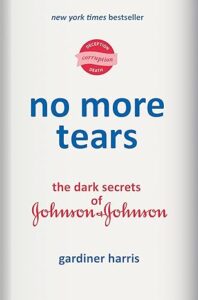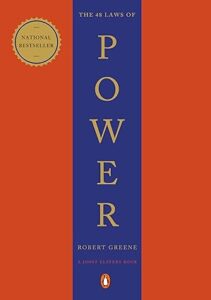Vanessa Abrams: The Most Hated Character in Season 3 of Gossip Girl?
Introduction
When you revisit Gossip Girl Season 3, one truth stands out in fan conversations: no character drew as much collective ire as Vanessa Abrams. Even now, Reddit threads, Tumblr posts, and fan essays repeatedly cite her as “the worst” or “the most unnecessary” during this pivotal season. But as a writer analyzing character arcs, it’s fascinating to unpack why Vanessa became the lightning rod for hate, and whether that was an accident of execution, or a deliberate choice gone awry.
What the Writers Wanted Vanessa to Be
From the beginning, Vanessa was designed as the “outsider’s voice” in the Upper East Side universe.
- Grounding the Narrative: She was Brooklyn’s antidote to privilege, a character meant to challenge the wealth, excess, and moral ambiguity of Serena, Blair, and Nate’s world.
- Moral Compass Role: Writers often positioned her as the truth-teller. Vanessa wasn’t meant to be glamorous; she was supposed to be authentic.
- Bridge Between Worlds: Through her connection to Dan, Vanessa functioned as a bridge between the elite UES bubble and the grittier, bohemian Brooklyn.
On paper, this is sound storytelling: an outsider lens offers contrast and critique, forcing the audience to re-examine the excesses of the main cast.
Why Season 3 Became the Turning Point for Hate
Despite this blueprint, Vanessa’s Season 3 arc veered into unpopular territory. The fan backlash wasn’t arbitrary—it stemmed from three key missteps:
A. Romantic Entanglements That Felt Forced
By Season 3, Vanessa was repeatedly thrust into love triangles that felt inorganic.
- Vanessa + Dan: Fans felt this pairing undermined the central “Dan and Serena” dynamic. Instead of being the loyal friend, she became a wedge.
- Vanessa + Nate: The relationship appeared shoehorned in, more plot device than natural development, which alienated both Nate- and Vanessa-fans.
Writers wanted her to complicate romances, but audiences saw it as sabotage rather than authentic drama.
B. Hypocrisy in Her “Moral Compass” Role
Audiences could forgive Blair’s scheming or Chuck’s manipulation because it aligned with their character identities. But Vanessa’s “holier-than-thou” stance clashed with her actual behavior.
- She called out privilege yet eagerly inserted herself into elite drama when convenient.
- She criticized deception while often participating in schemes herself.
- This inconsistency read as hypocrisy, making her less sympathetic.
On forums, fans expressed frustration: “If she hates the UES so much, why is she always meddling in it?”
C. Lack of Glamour in a Glamour-Driven Show
Gossip Girl thrived on fantasy: couture fashion, penthouses, high-society intrigue. Vanessa, intentionally written as bohemian and grounded, became a visual and tonal mismatch.
- Costuming emphasized her “outsider” status, but fans saw it as sloppy rather than principled.
- In a show where spectacle is the appeal, Vanessa’s rawness clashed with audience expectations.
Instead of celebrating her authenticity, fans dismissed her as irrelevant.
3. Writer’s Intent vs. Audience Reception
As writers, we know perception often trumps intention. Here’s how Vanessa’s portrayal diverged from intent:
- Intention: A principled, grounded Brooklynite who exposes the absurdities of wealth and excess.
- Reception: A meddling hypocrite who criticizes privilege while chasing its benefits.
This disconnect illustrates a classic writing challenge: when a character’s function (moral compass) doesn’t align with their actions, audiences will reject them, even if the blueprint made sense.
4. Lessons from Vanessa’s Arc
From a writer’s standpoint, Vanessa Abrams in Season 3 is a case study in how execution can undercut concept.
- Consistency Matters: If you set a character as the “moral compass,” you must either preserve that role or fully commit to their corruption. Waffling between the two creates audience resentment.
- Conflict Must Feel Organic: Love triangles work when tension feels inevitable; they fail when characters are forced into them for plot convenience.
- Know Your Show’s DNA: Gossip Girl is a fantasy of privilege. A character who critiques it can work, but if she simultaneously participates, she risks alienating viewers.
5. Final Thought
So, was Vanessa truly the “most hated” in Season 3? In terms of fandom response, yes. But from a writing lens, she wasn’t doomed by design. She was undone by inconsistency. Audiences didn’t hate her because she was poor or principled, they hated her because she preached one set of values while playing by another.
And in the high-stakes chessboard of Gossip Girl, hypocrisy is the quickest way to lose fan loyalty.
The Empire State of Mind
One of the season’s most controversial storylines centered on Chuck’s obsession with owning the Empire Hotel. His ambition, once admirable, turned ruthless when he effectively traded Blair’s loyalty in a business deal with Jack Bass. For many fans, this was the moment Chuck crossed a line that couldn’t be excused by charm or tortured backstory.
It wasn’t just bad writing, as some critics suggested, it was a deliberate showcase of how destructive their relationship could become when ambition trumped love. Blair’s decision to go along with it, and later her heartbreak, painted a picture of a romance that had lost its foundation.
Blair Waldorf: Independent or Ensnared?
Season 3 also highlighted Blair’s own struggles. Out of Constance and into NYU, she found herself in a world where her “queen bee” status didn’t carry weight. Her relationship with Chuck became both a comfort and a trap.
In moments, she was fiercely independent, supporting Dorota, pursuing her own dreams, or facing off against Serena. But when it came to Chuck, her agency often bent toward his needs. This tension is what makes Blair’s arc in Season 3 so divisive: was she standing beside her equal, or was she being slowly diminished by him?
Power Couple or Cautionary Tale?
The very phrase “power couple” implies balance, mutual respect, and shared strength. Chuck and Blair had the aesthetic of a power couple, the designer clothes, the banter, the iconic entrances at galas. But peel back the glamour, and what you find in Season 3 is a cautionary tale of passion tipping into toxicity.
They were powerful together, yes, but often at the expense of each other’s well-being. Their highs were intoxicating, but their lows were devastating.
Why Fans Still Care
Years later, Chuck and Blair’s Season 3 storyline continues to divide audiences. Some see it as essential, two flawed people navigating love in a cutthroat world. Others see it as damaging, romanticizing behavior that borders on abuse. Both perspectives have merit, and both highlight why this arc endures in conversation.
At the end of the day, Chuck and Blair weren’t just a love story. They were a mirror, showing how ambition, desire, and manipulation can intertwine in ways that are both irresistible and dangerous.
Final Word
So, were they a power couple or a toxic spiral? The truth is, they were both. That duality is what made them unforgettable, and why Season 3 remains one of the most debated chapters in the Gossip Girl saga.
XOXO. 💋













Post Comment